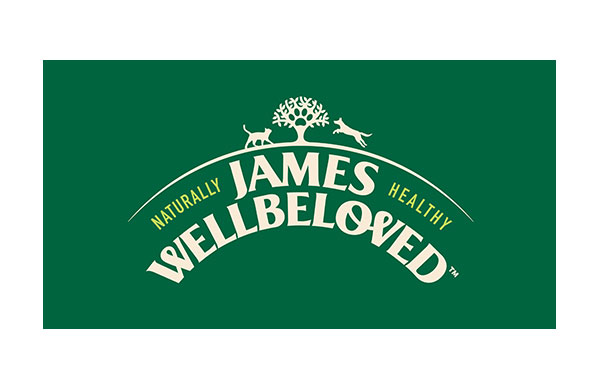James Wellbeloved

For the past 30 years, pet owners have trusted us to help keep their four-legged friends happy, healthy and full of life. Here at James Wellbeloved™, we make wholesome, delicious, naturally healthy and naturally hypoallergenic food to help your pet eat better and live better. Our tasty recipes are made with simple ingredients and are full of goodness. Because it’s only natural to want your pet to love their food and live a healthier, happier life.
FIND OUT MORE
